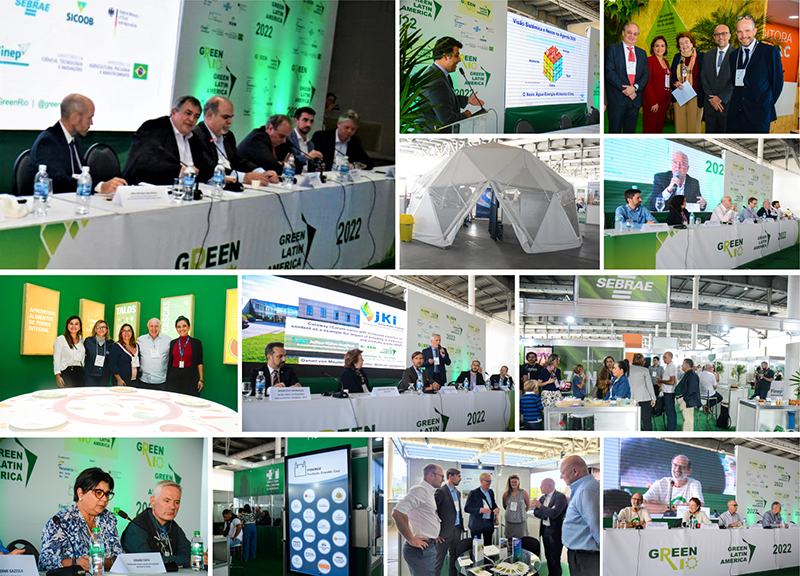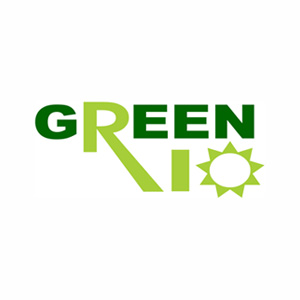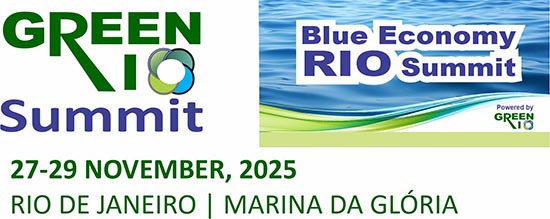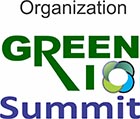| Green Rio 2022 made a mosaic of innovation, biodiversity and technology |
Bioeconomy meeting generated more than R$ 4 million in business and was attended by the Minister of Science, Technology and Innovation, Paulo Alvim.

In its tenth edition, Green Rio | Green Latin America, a platform for business, innovation and research in the bioeconomy and green economy, took more than 3,500 visitors, 101 speakers and 92 exhibitors to Marina da Glória for three days of lectures, workshops, fair and business roundtables, generating more than R$ 4 million for the green economy. The event, considered one of the main ones focused on the global bioeconomy, brought together representatives of entities such as the Ministry of Agriculture, Livestock and Supply, Ministry of Science, Technology and Innovation, Embrapii, Secretary of Agriculture, Livestock and Supply of the State of RJ, Finep, Sebrae , INPI, as well as companies and industry.
The Keynote Speaker at the event was Alexandre Alonso Alves, General Manager of Embrapa Agroenergia. In his talk, he mentioned the five challenges of the future: energy, water, food, environment and poverty. “We need to look at them and look for solutions. We are going through a post-pandemic economic recovery and the Ukraine war. These challenges are not new, but multifaceted and persistent. We have to be aware of the future of food security, many do not have access to food”, he said.
The Minister of Science, Technology and Innovation, Paulo Alvim, participated in two moments of Green Rio 2022: at the Ministry’s stand to launch the partnership with Embrapii (Brazilian Industrial Research and Innovation Company) – a series of actions to stimulate innovation in bioeconomy, and in the panel “Rural Development, Climate and Carbon”, which had the participation of Enrique Garcilazo, representing the OECD.
The Minister stated that it is necessary to communicate even more what has been done: “50 years ago, Brazil was an importer of food and has become a country that produces for one billion people with the prospect of feeding 50% of the planet by 2050 This can only be done with ecological scientific knowledge, but the bulwark for us to take the leap to where we are today was not just using science and technology, it was adapting production to our biomes. territory in which it is incorporated and in the case of Brazilians it is totally related to the biomes”, he said.
At the opening of the event, Maria Beatriz Bley Martins Costa, event coordinator, thanked the partners who have been at Green Rio since its first edition in 2012, when it was considered a side-event of Rio+20, also thanking those who arrived each year , recognizing at the event a differentiated space for business, qualified content and networking. She pointed out that this year, for the sixth consecutive time, the German-Brazilian Bioeconomy Workshop would be held.
Among the highlights promoted on the first day of Green Rio 2022 are the new MCTI/EMBRAPII Innovation in Bioeconomy Network, the Basic Funding Alliance (BFA) promotion for disruptive projects in the area and initiatives aligned with the National Fertilizer Plan. The total amount of resources reserved exceeds R$ 100 million for the purpose of stimulating Research, Development and Innovation (RD&I) in biotechnology; sustainability, new biofuels, pharmaceuticals and biopharmaceuticals; circular economy; agriculture; fertilizers and fertilizers, among others. As EMBRAPII’s operating model provides for co-investment by the business sector, it is estimated that actions in the area of bioeconomy and sustainability generate more than R$ 200 million.
The German-Brazilian Bioeconomy Workshop took place on the morning of the second day of the event. Representatives of the governments of Brazil and Germany discussed and presented common projects in the bioeconomy scenario.
The Secretary for Research and Scientific Training / Ministry of Science, Technology and Innovation, Marcelo Morales, who is part of the Brazil-Germany Bioeconomy Steering Committee, highlighted the importance of research in building bilateral strategic partnerships. The FIOCRUZ/ArticulaFito partnership with the Julius Kühn Institut, on medicinal and phytotherapic plants, was presented by the Technical and Executive Coordinator of the ArticulaFito Project, Joseane Costa, and by the researcher at the Julius Kühn Institut, Frank Marthe. Tilman Schachtsiek, representing the German Ministry of Agriculture, said that in the next edition of Green Rio, in 2023, new lines of partnership will be presented.
Another novelty of this edition was the realization of the first action in Latin America of AL-INVEST VERDE PI – European Fund for the Promotion of Intellectual Property at the Service of Innovation -, with the support of the National Institute of Industrial Property (INPI). The objective of the project – one of the pillars of the Al-Invest Verde program – is to promote greater use and effectiveness of Intellectual Property (IP) rights, particularly in MERCOSUR countries, creating opportunities for research cooperation and stimulating competitiveness and innovation. , including green innovation.
In 2022, for the first time, the event was attended by the Sicoob Rio Credit Cooperative System. At its stand, the business team of the cooperatives affiliated to Sicoob Rio offered financial products and services, such as credit, consortium, financing, insurance, among others, to the business public, rural producers (associations, cooperatives, others), self-employed professionals and consumers interested in green economy and sustainability. At the Innovation and Sustainability in Agribusiness Workshop, the presentation of Sicoob Rio was given by Renata Costa, Regional Coordinator Rio de Janeiro.
One of the highlights of the edition was a geodesic dome installed in the middle of the fair. Director Ismael Nobre participated in the panel “Amazônia – Fronteiras e Horizonte” and explained about his project, created in 2017. “This year, we dared to bring the equipment and our structure to demonstrate and be able to translate with experience and experience of Amazônia 4.0 and show in practice what we are doing in the Amazon. Our challenge is not just to study the problems, but we understand that we could no longer expect that traditional solutions already used would lead us to a change. Something different needed to be done. The objective was to make the forest have a greater economic value than its alternatives,” said researcher Ismael Nobre.
In the Food Security, Innovation and Technology panel, Brazilian and German speakers, moderated by the entrepreneur and president of the Council of Latin American Entrepreneurs, Ingo Plöger, proposed to form a working group to point out solutions and ways to face the growing challenge of insecurity. feed.
Sanitation, Blue Economy and Oceans were highlights on the third day of Green Rio 2022, and it is anticipated that these themes will occupy significant space in the next edition of the event.
The Fecomércio RJ system was present with a stand, where visitors could learn about the initiatives of Sesc RJ, Senac RJ, IFes and IFec in the area of sustainability and social responsibility. The system promoted the lecture “Map of Hunger in the State of Rio de Janeiro”, with the coordinator of Mesa Brasil Sesc RJ, Cida Pessoa, and with the specialist in Market Intelligence and Research from the Fecomércio Research and Analysis Institute of Rio de Janeiro (IFec RJ), Júlio Cesar Purcena. During Green Rio, Instituto Fecomércio de Sustentabilidade (IFeS) launched the campaign “Scraps and scraps interest me” and presented a new recycling machine that collects five types of waste, such as PET bottles, plastic cups, aluminum, glass and Tetra packaging. pack The equipment benefits the consumer through the delivery of recyclables.
Among the exhibitors, Sebrae RJ took startups and nine small companies in the area of impact business. Sebrae AM brought together small companies that work with Amazonian biodiversity products, which was one of the fair’s attractions. The Sebrae MS brought to Rio de Janeiro projects from Mato Grosso do Sul, including the Pantanal biome.
The organic sector was present at Green Rio represented by the booths of Instituto Brasil Orgânico, Korin and Fazenda Alliança and in the panel “Bioinputs and their Relation to a True Green Economy”.
“Green Rio has established itself as a platform for the bioeconomy, bringing together actors from the government, third sector, companies, industry, academia and consumers, forming a mosaic of people who effectively want to make a difference for a better planet”, said Maria Beatriz Bley Martins. Costa, coordinator of Green Rio.
About Green Rio
Green Rio had its first edition in 2012, when it was a side-event of Rio+20. Over ten years, it has established itself as a sustainable business platform that brings together exhibitors, speakers and representatives of the green economy and the organic sector. More information: https://www.greenrio.com.br
I agree to Green Rio terms of use and privacy policies


